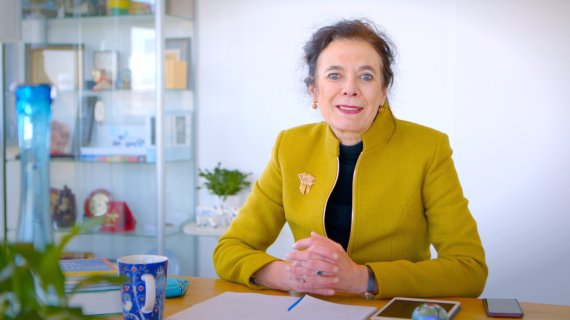he Executive Board is currently working on the basis of three scenarios: a slowdown phase, with people working from home wherever possible, a theoretical lockdown phase and a recovery period. The Crisis Management Team (CMT), which was set up on 12 March, is working out the details under the leadership of Board member Rens Buchwaldt. The team meets several times a day and the Executive Board once a day. All online, of course. Fresco: ‘At present we are mainly discussing practical matters such as how to keep our IT systems future proof and how to deal with students’ internships and research projects. But we are also looking at what to do about staff holidays or employees who have just joined the organization. And what a lockdown scenario would mean for WUR. Those scenarios are being worked out further for teaching or HR, and adjusted as new information becomes available.’ The CMT is coordinating everything.
The new normal
WUR is currently in the slowdown phase. The crisis team is working with HR on decisions that have to be taken because of the restrictive measures imposed by the government. Fresco: ‘What does this mean for our construction plans, for example? Should we close more buildings, which labs should stay open and with what staffing levels? To some extent, these are decisions for the business unit managers but we need to act together. The slowdown phase will probably last another two months, perhaps even four. What if it continues beyond the summer holidays? What should we do for staff and students who don’t have a good internet connection at home? How can we support colleagues with young children or sick relatives, and what can we do for international students who become ill?’ We need to find a ‘new normal’, says Fresco. ‘It also needs to become less stressful than the past 14 days. We want tailored solutions to keep everyone as motivated as possible as they work on teaching, research or new ideas. Times of crisis can sometimes actually be the catalyst for innovations. It is important for us to hold onto our typical Wageningen creativity and enthusiasm, even if the situation doesn’t improve soon and fatigue sets in.’
We need to find a new normal
Students
Students face other problems too. Some are abroad and want to come home. Others were just starting an internship that has now been cancelled. Foreign students are worried about family back home and wondering whether they should return. ‘We coordinate our approach to many of the issues affecting students and PhD candidates with the other universities, with the rector taking the lead here. For example, we decided that we would do all the PhD ceremonies online. So the slowdown is bringing about some big changes.’
Creativity
‘Have we taken the right decisions so far? As prime minister Mark Rutte said, “You have to take 100 per cent of the decisions with 50 per cent of the information”. We are constantly on the alert. You can compare the situation with standing on a ball that keeps on rolling, so you are constantly having to adjust. I see an awful lot of creativity and goodwill; I am full of admiration for everyone.’ Eventually there will be a recovery phase, says Fresco. ‘It is unclear when this will start. We will then need to restart our usual operations in a new reality. Because this period can have consequences for financing or the intake of new students, including those from abroad. WUR doesn’t have any urgent financial issues but we very much want to achieve our ambitions.’

